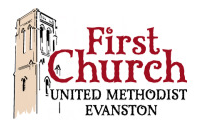The Good Book: Reading the Bible with Mind and Heart
By Peter J. Gomes
discussion begins Feb. 22, 2024
Why are so many intelligent and compassionate people embarrassed to say they find wisdom and comfort in the Bible? Why do so many seekers turn to New Age religions instead of the Bible? And how as a society did we come to cede biblical interpretation to those who would use the Bible as a tool for division and exclusion? In this groundbreaking book, Peter Gomes shows how to read the Bible and what it says about spiritual topics that concern us all, including joy, suffering, evil, and goodness. He also explains what the Bible really says about women, gays and lesbians, and people of color. With compassion, humor, and insight, he gives readers the tools and understanding they need to make the ancient wisdom of the Bible a dynamic part of their modern lives.
“The Bible and the social and moral consequences that derive from its interpretation are all too important to be left in the hands of the pious or the experts, and too significant to be ignored and trivialized by the uninformed and indifferent.”
Dubbed by Time magazine as one of America’s seven best preachers, the late Harvard professor of Christian Morals and pastor of the school’s University Memorial Church, Rev. Gomes’ work, The Good Book, is written for the general public to entice them back to reading the Bible through new eyes, paying more attention to its moral principles than the social practices.
Rev. Gomes asserts that Biblical literacy in this country is extremely rare. Among a thousand people polled in the US by the Barna Research Group 10 percent said that Joan of Arc was Noah’s wife, 16 percent were convinced that the New Testament contained the Gospel of Thomas, and 38 percent believed the Old and New Testaments were written a few years after Jesus’ death. Gomes observed humorously that, “These replies are worthy of the old Sunday school howler in which the epistles are defined as the wives of the apostles.” (p. 5)
The Good Book is divided into three sections: “Opening the Bible” wherein Gomes warns against three dangerous and common temptations on Biblical interpretation: (1) bibliolatry, “the worship of the Bible, making it an object of veneration and ascribing to it the glory belonging to God,” (2) literalism, “the worship of the text, in which the letter is given inappropriate superiority over the spirit, and (3) culturalism, “the worship of the culture in which the Bible is forced to conform to the norms of the prevailing culture.” Section two, “The Use and Abuse of the Bible” is a historical account of how the Bible has been used to oppress certain groups: Jews, women, homosexuals, and minorities. Section three, “The True and Lively Word” explores what the Bible has to say about the good life, evil, suffering, temptation, wealth, science, mystery and joy.
ALL are welcome. Contact bbeckonchrist@gmail.com for ZOOM info.
